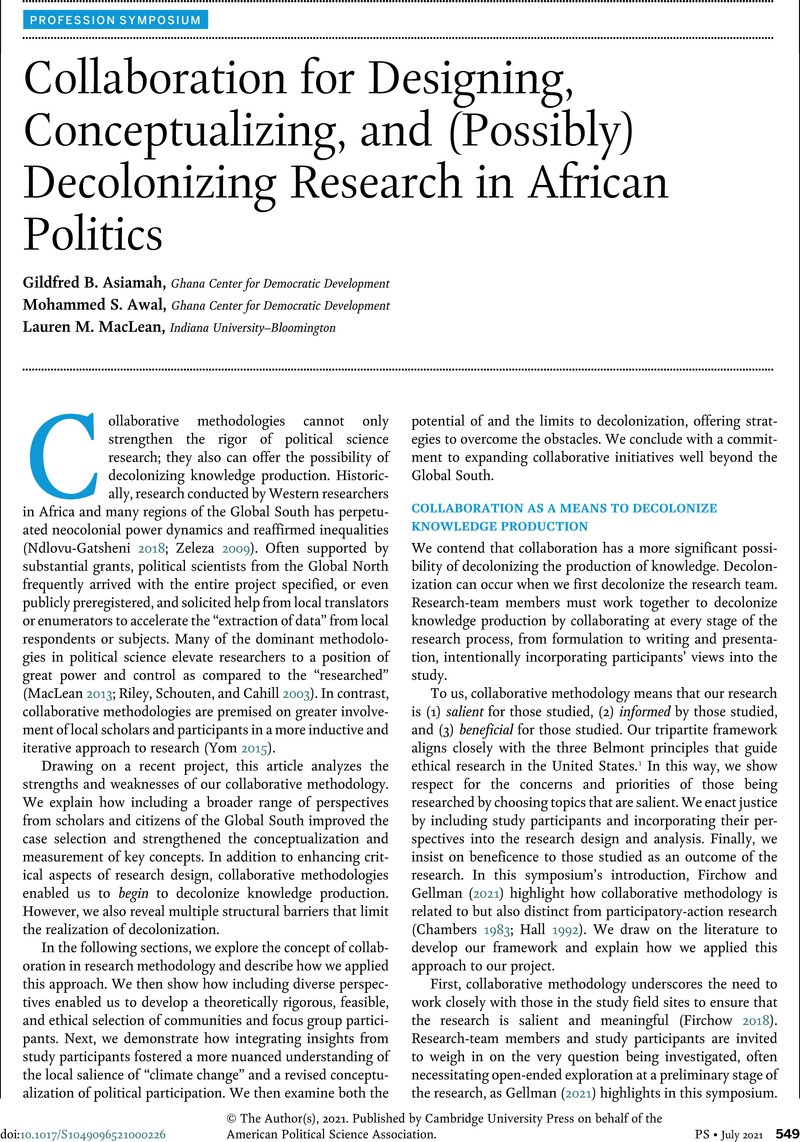Crossref Citations
This article has been cited by the following publications. This list is generated based on data provided by Crossref.
Dorussen, Han
Bakaki, Zorzeta
and
Kolbe, Athena R.
2021.
Challenges of Using Collaborative Methodologies in Surveying Political Trust in Haiti.
PS: Political Science & Politics,
Vol. 54,
Issue. 3,
p.
570.
Flores, Thomas Edward
2021.
Everyday Democracy Indicators? How the Study of Democracy Illuminates the Value (and Challenges) of Collaborative Methodologies.
PS: Political Science & Politics,
Vol. 54,
Issue. 3,
p.
565.
Mikhael, Drew
and
Norman, Julie
2021.
Collaboration in Commissioned Research: Benefits and Challenges of Scholar–Practitioner Partnerships in Conflict Contexts.
PS: Political Science & Politics,
Vol. 54,
Issue. 3,
p.
554.
Brass, Jennifer N.
Harris, Kirk A.
and
MacLean, Lauren M.
2021.
Does electricity demobilize citizens? Exploring access to the grid, political participation and democracy in Africa.
Energy Research & Social Science,
Vol. 81,
Issue. ,
p.
102256.
Rakotonarivo, O. Sarobidy
and
Andriamihaja, O. Ravaka
2023.
Global North–Global South research partnerships are still inequitable.
Nature Human Behaviour,
Vol. 7,
Issue. 12,
p.
2042.
Andrews, Nathan
and
Khalema, Nene Ernest
2023.
Decolonizing African Studies Pedagogies.
p.
1.
Purnell, Philip J.
2024.
Geodiversity of research: geographical topic focus, author location, and collaboration. A case study of SDG 2: zero hunger.
Scientometrics,
Croker, Abigail Rose
Ford, Adriana E. S.
Kountouris, Yiannis
Mistry, Jayalaxshmi
Muthiuru, Amos Chege
Smith, Cathy
Praise, Elijah
Chiawo, David
and
Muniu, Veronica
2024.
Decolonising Fire Science by Reexamining Fire Management across Contested Landscapes: A Workshop Approach.
Fire,
Vol. 7,
Issue. 3,
p.
94.





